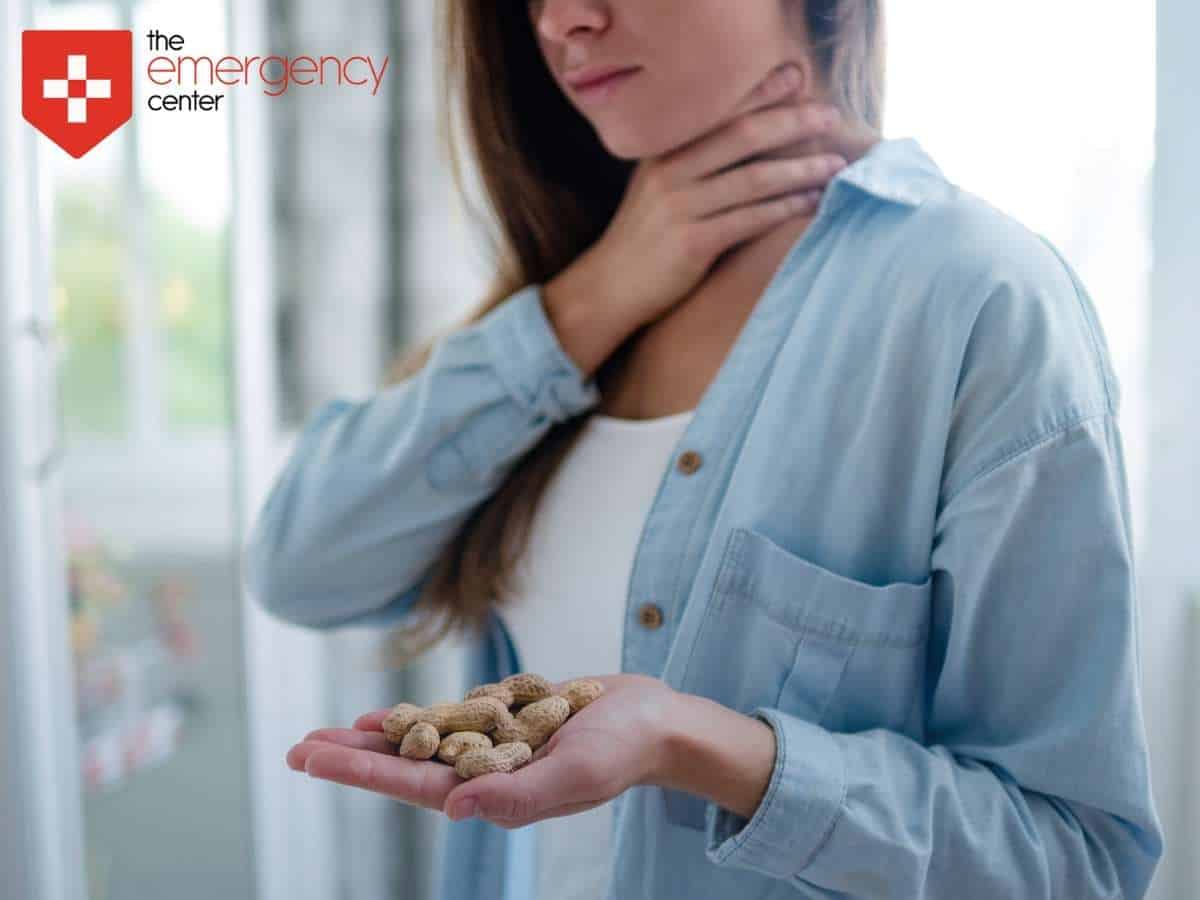When Food Allergies Become An Emergency
When To Go To An ER For Food Allergy Symptoms
People with food allergies have to be careful with what they eat because an allergic reaction to food can be a deadly situation. Each year, 30,000 emergency visits occur in the United States due to foodborne allergic episodes. With over 160 existing food allergies, it is easy to see why this is such an important issue, especially for those that prepare food for others.

Most Common Food Allergies
There are eight major food allergens which are components in a variety of cuisines and recipes and are often initially undetected. They are so common that the law requires manufacturers to label products that may contain them.
-
Milk Allergy
Specific proteins found in cow’s milk can trigger allergic reactions in some individuals. People with an aversion to milk typically substitute the ingredient with other non-dairy kinds of milk (soy, coconut or almond milk). Avoid foods that include elements such as cheese, creams, butter, and yogurt.
-
Egg Allergy
Similar to a milk allergy, the immune system does not recognize specific proteins in eggs and therefore considers them to be a threat. This triggers the release of chemicals sent to fight off these proteins. Many foods contain eggs. Bread with egg, pasta, mayonnaise (aioli), certain salad dressings, custards, and hollandaise are just some of the items to avoid. Fortunately, there are many eggless alternatives to substitute for many of these foods.
-
Peanut Allergy
Peanuts can trigger some immediate symptoms for those who may be allergic. These symptoms can become fatal if not treated immediately. Many factories produce peanut-free products alongside other products that contain peanuts. This creates an unseen hazard to those with peanut allergies, so those with this allergy should be sure to read the product labeling carefully before consumption.
-
Tree Nut Allergy
This allergy is similar to peanuts. The difference is that peanuts are classified as legumes and grow in the ground, not on trees. Observing the same precautions as with peanuts will help reduce the risk of a reaction.
-
Soy Allergy
Foods such as tofu, soybeans (edamame), soymilk, and soybean oil obviously contain soy. Other food products contain these ingredients. The packaging for these products will mention this. Always indicate any food allergy to whoever is preparing the meal.
-
Seafood Allergy
One of the two types of marine allergies, seafood is a more general term that may include one or more types of finned fish.
-
Shellfish Allergy
The second type of marine allergy is shellfish. This category includes shrimp, crab, lobster, scallops and the like. Some species of fish also consume large amounts of shellfish. Those with this allergy should be cautious when eating all seafood.
-
Wheat (& Gluten) Allergy
More foods may contain this allergen than any other. Some people may simply not prefer gluten (which is in wheat). Others have a condition, called celiac, where a wheat allergy can be life-threatening. Wheat is in soy sauce, bread and other baked goods, some ice creams and even hot dogs or sausages. Product labels nowadays make sure that the consumer has access to any allergy information. There are also gluten-free options for just about every food item.
Uncommon Food Allergies
Some people are allergic to other, less common, foods. Identifying and avoiding them can be more difficult. Although rare, allergies to red meat, sesame seeds, avocados, marshmallows, corn, mangoes, and many others do exist. Always ask someone if they have any aversions to anything before preparing their food. People with severe allergies will usually make sure to convey this information.
Prevent Food Allergy Emergencies
Any food allergy is serious and reactions can lead to anaphylactic shock if the patient does not receive immediate medical attention, therefore vigilance is required in protecting oneself from the dangers of food allergens. When preparing food, wash hands often and avoid cross-contamination. Always be cognizant when dining in unfamiliar places or restaurants, making sure that servers advise the kitchen staff about the food allergy.
Symptoms & Treatment Of Allergic Reactions
When someone has an allergic reaction to any food, the signs are similar. Initially, the person may have a sudden itch in their throat. One or more symptoms may follow this itch; hives break out on the skin, and there may be notable swelling on the lips, tongue, throat, or face. They may also experience dizziness, coughing, vomiting, diarrhea, and respiratory problems. If symptoms persist, they may lead to loss of consciousness, and the reaction may become fatal.
Allergic reactions require immediate attention. The symptoms progress very rapidly and typically do not go away on their own, so people with severe food allergies should keep an EpiPen with them at all times. An EpiPen is an injection of the drug epinephrine and is the only medication that can reverse the symptoms of anaphylaxis caused by an allergic reaction. The injection immediately opens airways in the lungs and narrows blood vessels.
Always treat allergic reactions as an emergency. If you have symptoms of a food allergy, do not hesitate to come to The Emergency Center right away. The Emergency Center provides up to 23 hours of Observation and offers 24/7 care with NO WAITING. Visit The Emergency Center’s convenient 24-hour location.

The Emergency Center
San Antonio
11320 Alamo Ranch Pkwy
San Antonio, TX 78253
Phone: 210-485-3644
Conroe
4019 I-45 N,
Conroe, Texas 77304
Phone: 936-247-9457
